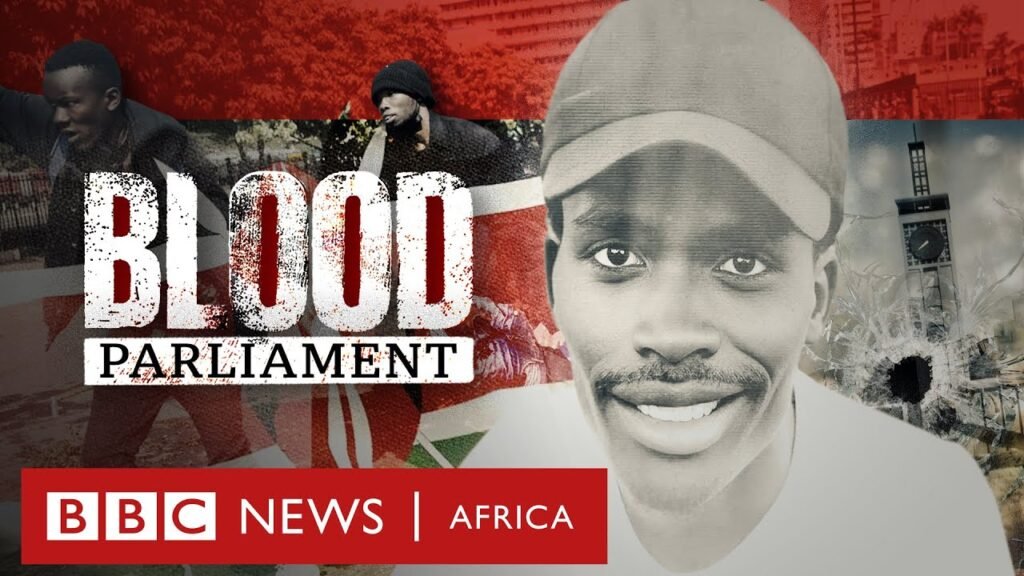NAIROBI, KENYA — Kenyan authorities have reportedly stopped the public screening of a BBC Africa Eye documentary that sheds light on police killings during the 2023 anti-tax protests near Parliament in Nairobi. The film, titled Blood Parliament, reveals disturbing footage and findings linking security forces to the fatal shootings of demonstrators.
The screening was scheduled for Monday evening at Unseen Nairobi cinema and was to be followed by a panel discussion. However, according to the BBC, official pressure led to the abrupt cancellation of the event.
“A screening of BBC Africa Eye’s ‘Blood Parliament in Kenya’ was cancelled due to pressure from the authorities,” a BBC spokesperson said. “We are very disappointed not to have been able to share the documentary and panel discussion as planned. In the meantime, audiences can watch the film on BBC Africa’s YouTube channel.”
ADVERTISEMENT
The documentary focuses on the June and July 2023 protests against the Finance Bill and President William Ruto’s administration, led predominantly by Gen Z demonstrators. More than 60 protesters reportedly died, but to date, no official inquiry findings have been released.
The investigation, based on over 5,000 images, identifies both the shooters and those who allegedly issued orders to kill.
A Nairobi Central Police Station officer, Job Kaboi, is seen mobilising colleagues to engage in lethal action. Another masked officer is believed to have shot and killed 39-year-old David Chege and 25-year-old Erickson Mutisya just outside Parliament.
The film also attributes the death of 27-year-old University of Nairobi student Eric Shieni—who was shot in the head while fleeing—to a Kenya Defence Forces (KDF) officer.
Since its release, the documentary has attracted over two million views on YouTube in just 24 hours and reignited demands for the prosecution of officers involved in the killings.
In response to mounting pressure, the Independent Policing Oversight Authority (IPOA) stated on Monday that it had concluded investigations into 22 of the 60 reported deaths. The authority is still reviewing 36 cases, with two already in court.
Also Read: Kenyan MP Calls for BBC Ban Over ‘Blood Parliament’ Documentary
According to IPOA, two files were internally closed, three were dismissed on the advice of the Office of the Director of Public Prosecutions (ODPP), and four remain under review at the ODPP.
IPOA Chairman Issack Hassan revealed that 233 injury cases were also recorded. He attributed delays in some investigations to the lack of cooperation from both police personnel and witnesses.
Interior Cabinet Secretary Kipchumba Murkomen was expected to issue a formal statement on Tuesday.
The BBC “Blood Parliament” Documentary
The 37-minute BBC exposé, released on YouTube on Monday, April 28, 2025, meticulously reconstructs the events of June 25, 2024. It employs 3D modeling, forensic video analysis, and eyewitness accounts to detail the shootings that shocked the nation.
On that day, tens of thousands of predominantly Gen Z protesters took to the streets of Nairobi to oppose the Finance Bill 2024, a controversial piece of legislation proposing new taxes.
Despite strong opposition both within and outside Parliament, the bill was passed by a vote of 195 to 106, triggering widespread outrage among demonstrators gathered outside the National Assembly.
The documentary reveals that the first fatalities occurred on Parliament Road shortly after the vote. David Chege, a 39-year-old software engineer and Sunday school teacher, and Ericsson Mutisya, a 25-year-old butcher, were fatally shot.
The BBC’s 3D reconstruction depicted the moment police advanced on protesters, with one officer kneeling and firing, resulting in the deaths of Chege and Mutisya and injuries to at least five others.
The violence escalated as protesters breached the Parliament complex, entering the chambers for the first time in Kenya’s post-independence history.

